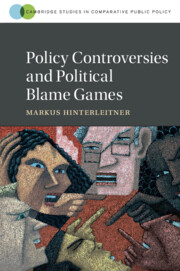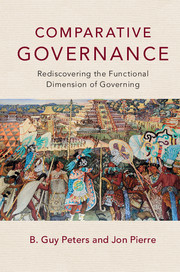Policy Controversies and Political Blame Games
In modern, policy-heavy democracies, blame games about policy controversies are commonplace. Despite their ubiquity, blame games are notoriously difficult to study. This book elevates them to the place they deserve in the study of politics and public policy. Blame games are microcosms of conflictual politics that yield unique insights into democracies under pressure. Based on an original framework and the comparison of fifteen blame games in the UK, Germany, Switzerland, and the US, it exposes the institutionalized forms of conflict management that democracies have developed to manage policy controversies. Whether failed infrastructure projects, food scandals, security issues, or flawed policy reforms, democracies manage policy controversies in an idiosyncratic manner. This book is addressed not only to researchers and students interested in political conflict in the fields of political science, public policy, public administration, and political communication, but to everyone concerned about the functioning of democracy in more conflictual times. This title is also available as Open Access on Cambridge Core.
- Develops a new approach for the study of political blame games that yields new insights into political conflict in Western democracies
- Analyses and compares a great variety of policy controversies from failed infrastructure projects to procurement problems to food scandals to security issues to flawed policy reforms
- Contains an innovative comparative research design that allows readers to compare blame games across issue areas and countries and to learn how complex political events can be theoretically captured and compared in a 'context-sensitive' way
- Open Access title
Product details
March 2023Paperback
9781108816441
262 pages
228 × 152 × 19 mm
0.39kg
Available
Table of Contents
- List of figures
- List of tables
- List of abbreviations
- 1. How political systems manage their policy controversies
- 2. Blame games in the political sphere
- 3. Blame games in the UK
- 4. Blame games in Germany
- 5. Blame games in Switzerland
- 6. Mapping the influence of institutional factors
- 7. Mapping the influence of issue characteristics
- 8. A typological theory of blame games and their consequences
- 9. Blame games and their implications for politics and democracy under pressure
- References
- Appendix.








